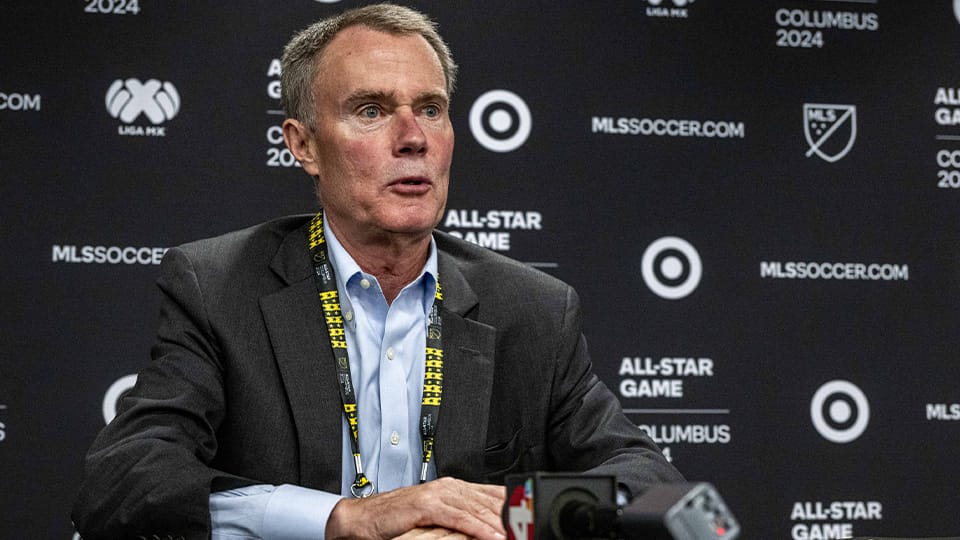Hogsett administration’s 2025 budget passes, but without bipartisan support
Subscriber Benefit
As a subscriber you can listen to articles at work, in the car, or while you work out. Subscribe Now
The City-County Council passed Indianapolis Mayor Joe Hogsett’s latest budget Monday night, but the third-term mayor ran into something he hasn’t experienced before in the annual budget vote—a lack of broad bipartisan support.
Three Democrats joined all six council Republicans in voting against his $1.65 billion budget plan, which passed 16-9.
It was the eighth consecutive balanced budget under Hogsett, but it was the first time in his tenure that Republicans decided to vote against it.
The budget includes record funding for police, additional funds for pedestrian safety measures and pay hikes for many city employees. The city is renegotiating union contracts with seven different entities, including police, firefighters, sheriffs and municipal employees.
“Despite ongoing labor negotiations and a year of tight revenue growth for the city and county, this 2025 budget shows our support for our employees and the important work they do each and every day to serve residents, as well as continues to fund successful city programs that we know are making Indianapolis a better, safer place for all,” Hogsett said in a written statement.
The mayor’s office praised the budget’s 4% increase for the Indianapolis Metropolitan Police Department, new contracts for unions, the creation of a standalone Animal Care Services Agency and continued investments in areas such as housing and homelessness, violence reduction and infrastructure.
In previous years, the Republican caucus has raised concerns about the proposed budget but ultimately voted in favor of the final budget. That was the case last year, even as the mayor faced a well-funded Republican challenger in the November election. On Monday, Republican Councilor Josh Bain said he was disappointed in the amount of infrastructure funding and encouraged councilors who were unhappy with the budget to follow suit.
“Maybe it’s time to try something new,” Bain said. “Maybe we need to show that we are not OK with this budget.”
Bain previously proposed an amendment to the budget that would have cut funding to some city departments in order to fund roadwork, but it was shot down in committee.
“We believe that this budget woefully underfunds public safety and infrastructure needs, and it provides funding for programs that are fraught with dysfunction and lack of transparency, such as the mayor’s ‘violence interrupters …,’” the council’s Republic Caucus said in a letter. “Furthermore, this budget ignores our county’s infrastructure needs by hundreds of millions of dollars. Our caucus attempted to amend the budget to improve our infrastructure funding, and the mayor and council Democrats killed that proposal, leaving our county in a hole, and guaranteeing that roads in Marion County will continue to go from bad to worse.”
Three new Democrats voted against the budget: Rena Allen and Carlos Perkins, as well as Jesse Brown, a self-described Democratic Socialist who has not typically fallen in line with the mayor.
Prior to the meeting, Allen and Perkins joined dozens of members of the Black Church Coalition outside the City-County Building to express the organization’s concerns. Allen and Perkins are both involved with the grassroots advocacy group.
Perkins said some budget aspects, like the continued funding for the city’s Clinician-Led Community Response program and the gun violence reduction program, were positive moves, but that “funding for urgent needs did not make it into the budget.”
Perkins said those needs included creating free early childhood education programs, addressing climate change, and increasing pedestrian safety in Indianapolis’ streets.
“We know that investment in these areas creates safer and healthier communities, and instead, the proposed budget prioritizes excess allocations based on aspirations and not on reality,” Perkins told his colleagues.
Brown said the budget shows a choice to “continue to kick the can down the road” by putting off important investments.
He said the budget underfunds roads and sidewalks, does not address the city’s housing crisis and ignores the demands of constituents. That includes the request from members and supporters of the Indiana Forest Alliance to spend $6 million on increasing urban forests. The budget included just $1 million for forest acquisition related to stormwater infrastructure.
Councilor Dan Boots, a Democrat, joined Brown in his concerns about funding for urban forests and the Arts Council of Indianapolis, which sought $3 million for public art. Ultimately, additional funds from the Indianapolis Bond Bank and Capital Improvement Board brought the funding for the organization to $2.3 million. Despite concerns, Boots voted “yes.”
“I really implore the city to get much more creative in generating revenue, or we’re going to have a depressing discussion like this every year,” he said.
The proposed and approved budget book are available on the city website.
